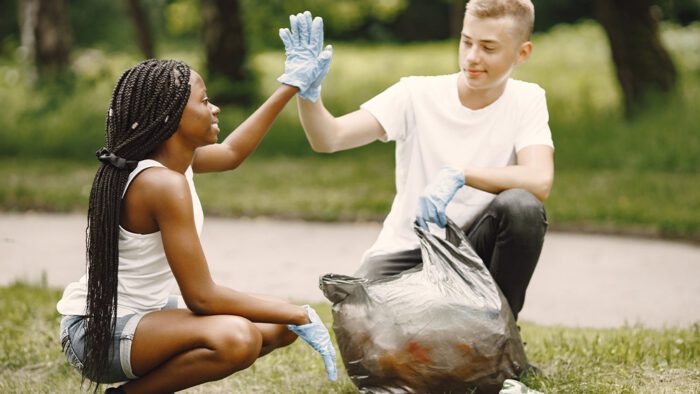
The start of a new school year is exciting for parents, students, and teachers. However, all that excitement and the influx of new students can come with a big problem – waste. From pre-k to college, litter can majorly impact our schools. According to Keep America Beautiful, educational institutions spend an estimated $241 million on litter costs alone. This school year, make a difference by implementing litter prevention strategies and help create a cleaner, healthier learning environment for students. Discover Nobody Trashes Tennessee’s top tips for maintaining a litter-free school year across Tennessee!
The Impact of Litter in Schools
Litter in schools can create a wide range of problems that affect a student’s learning outcomes. For example, when food waste is not disposed of properly, it can become a breeding ground for bacteria and insects, posing health risks. Additionally, it isn’t great for school morale. Litter can be distracting and demotivating to students, impacting their mental health.
Moreover, trash on campus can damage school property. Just think of the last time there was severe flooding in the area. Now imagine what the impact is when debris clogs drains. Furthermore, waste can cause wear and tear on campus grounds, contributing to high littering costs.
Tips for Effective Litter Prevention in Schools
Now that we understand the impact of litter in schools, how do we prevent it? Here are a few environmental practices for students to learn so they can help create a litter-free Tennessee:
Lesson One: Education and Awareness
Including litter prevention in curriculum can effectively teach students how to dispose of garbage responsibly. In addition, trash-free awareness initiatives and workshops can be practical and engaging. Volunteering in nature can also positively impact mental health, making it a win-win situation. Moreover, encouraging responsible waste disposal habits is essential to creating good habits. Say something if you see a student or peer throwing trash on the ground! Sometimes, this first step can lead to significant progress.
Lesson Two: Waste Management 101
Implementing proper waste disposal is essential for curbing the school litter problem. Ensure there are enough trash bins throughout the school and that waste is collected and disposed of regularly. Furthermore, if your school doesn’t have a recycling program or other litter-free initiatives, now is a great time to petition for one. Help students identify what trash can be recycled to help them develop environmental practices early.
Lesson Three: Create a Litter-Free Culture
One of the best ways to combat litter on school grounds is to create a litter-free culture among students and staff. Establish a school-wide litter policy that incorporates the steps above. Additionally, collaborate with local businesses and organizations to gain more resources and support for your efforts. Participation in community cleanup events can also instill a sense of civic responsibility in students, encouraging them to maintain a cleaner environment beyond the school grounds.
Join the Movement to Create Litter-Free Schools
Keeping a litter-free school is crucial, but remember that maintaining Tennessee’s cleanliness is a collective responsibility. Use the tips above to create a cleaner, healthier, and safer learning environment, and extend these practices to your local community. Be part of the solution to end littering in Tennessee! Even small changes can make a significant difference to our environment.
Sources:
- Keep America Beautiful 2020 Litter Study
(Keep America Beautiful, kab.org) - Littering Costs Everyone
(Anderson County Litter Program, LitterFreeinTennessee.org)



